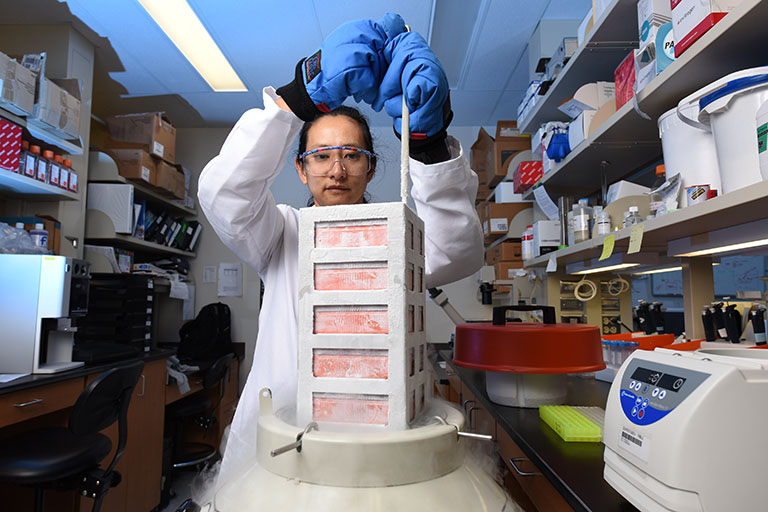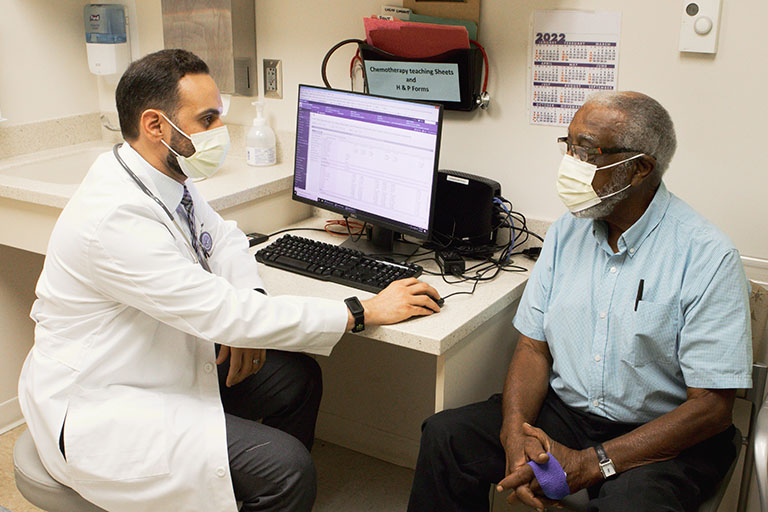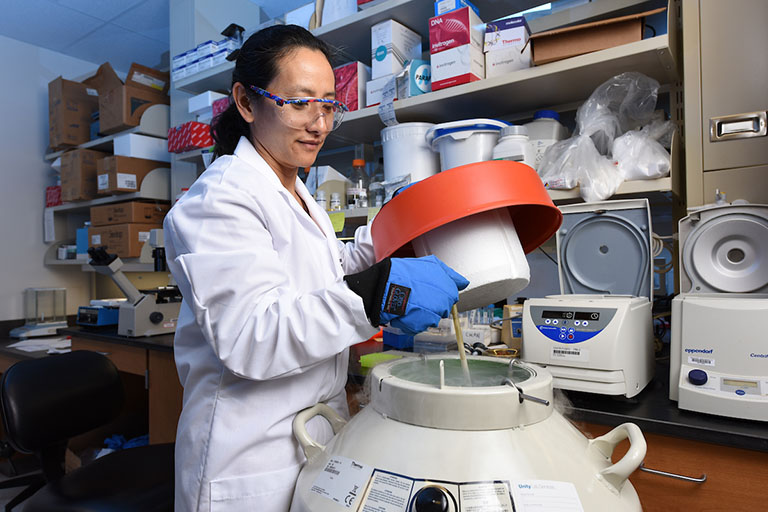Controlling multiple myeloma is good—curing it is even better
Our sights are firmly set on finding a cure for multiple myeloma, a rare blood cancer.
Our sights are firmly set on finding a cure for multiple myeloma, a rare blood cancer.

We are home to some of the top myeloma researchers in the world, and we’re closing in on the disease from multiple angles. Already, patients are living longer with fewer debilitating side effects. We want to push forward with research that allows patients to live with the certainty that their myeloma can be controlled – or even cured.
Leading the charge—and sometimes the pack of cyclists riding for a cure—is Rafat Abonour, MD, who goes to extraordinary distances for his patients.
#ResearchCuresCancer.

At IU Health’s new Rapid Access Clinic, you’ll receive prompt access to the specialized care you need to achieve the best possible outcome.
If you’re told you may have cancer, a certified physician assistant will guide you through an expedited diagnostic process that gets you into treatment faster and back to life more quickly.
Every multiple myeloma patient has a unique disease. No two myelomas are exactly the same. That’s why this disease is so difficult to cure. At IU, we are learning everything we can about the diversity of this disease to better develop and personalize stem cell transplants and immunotherapy.

By participating in the Indiana Myeloma Registry, you can provide the data that physician-scientists need to pinpoint how the disease develops, who’s most at risk, and how well current treatment protocols are working.
Take a look to find out how the study works and who’s eligible to participate.
We can cure cancer, but we can’t do it alone—find out if you or a loved one might qualify for one of our research studies.
Dr. Kelvin Lee isn’t just our cancer center director. He’s also a world-renowned expert in multiple myeloma and immunology. He has authored more than 100 articles in prestigious medical journals and he holds two patents.
Those achievements are impressive, but they aren’t what make him such a beloved physician and teacher. When he talks about research and how it impacts patients, you can hear (and even see, as his hands fly around enthusiastically) the passion.
In fact, his personal mantra is #ResearchCuresCancer.
For this to be successful, we need to get our science into our patients. We’re well-poised to light the way to ending cancer’s darkness.
Kelvin Lee, MD — Director, IU Simon Comprehensive Cancer Center
Donations make a direct and lasting impact on multiple myeloma research. Take a look at what our experts are studying.

If you volunteer for a multiple myeloma clinical trial, there’s a good chance Dr. Attaya Suvannasankha will be at the helm.
Through her leadership role in the Big Ten Cancer Research Consortium, she’s a nationally known expert in getting new treatments from the lab to the clinic.
Dr. Suvannasankha and her colleagues need your help to make advancements in myeloma care. Find out if you or a loved one might qualify for one of our research studies.
Our monthly video series brings together cancer center researchers and physicians, patient advocates, and others to talk about various cancer-related topics.
We’ve covered “chemobrain,” fear of cancer recurrence, health disparities, exercise and physical therapy, the emerging field of supportive oncology, and more.

Philanthropy is essential to IU Simon Comprehensive Cancer Center’s efforts to find solutions that save lives. Your gifts facilitate research that sets worldwide standards for care, improving outcomes for patients in Indiana and far beyond.
To learn more about how you can support cancer research, review our giving options or contact our development team today.